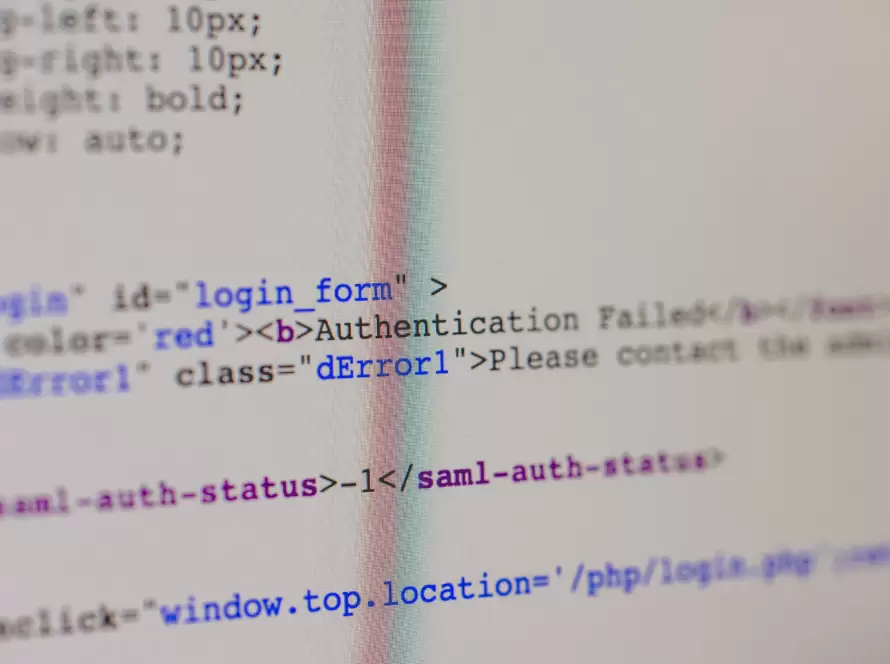Generated by Contentify AI
- Introduction
- What are Constants?
- Declaring Constants in PHP
- Using Constants in PHP
- Benefits of Using Constants
- Best Practices for Using Constants
- Conclusion

Introduction
The concept of using constants in PHP programming is something that many novice coders may not be familiar with. In this blog, we’ll be exploring the basics of constants in PHP and why they are important to know and use.
Constants are used to store values that cannot be changed during the execution of a program. They are especially useful when building software or applications that require a fixed set of values. By using constants, your code is easier to read and maintain.
The primary benefit of constants is that they keep code clean and organized. Using constants to store variables prevents code bloat and reduces the need to constantly look up the value of a variable. Additionally, constants are more secure than variables because the values can’t be changed.
When programming with constants, it’s important to remember that they should be assigned a value before they can be used. Assigning a value to a constant is done using the define() function. This function requires two parameters: the name of the constant and its value. For example, the following code assigns a constant named “MY_CONSTANT” with the value of “My value”:
define(“MY_CONSTANT”, “My value”);
Once a constant is defined, it can be used in place of a variable. This is especially useful when dealing with code that needs to be maintained over time. Constants are also useful for setting configuration values and defining global variables.
When working with constants, it’s important to remember that they are case-sensitive. This means that “MY_CONSTANT” and “My_Constant” are two distinct constants. Additionally, constants cannot be changed once they are defined. This means that any attempt to redefine a constant will result in an error.
In summary, PHP constants are a powerful way to store values that will not change during the lifetime of a script. They are essential for code readability and maintainability, and they provide an additional layer of security by ensuring that the values of a variable cannot be changed without explicitly changing the code. By understanding the basics of PHP constants, you can make your code more organized and secure.
What are Constants?
Constants are a special type of variable in PHP that can provide a reliable way of storing values and data for your application. A constant is a named value that is used to store a fixed value throughout the lifetime of a script. Constants are defined using the define() function and its syntax is define(name, value, case-insensitive).
Unlike variables, constants cannot be changed or undefined once they are set. This makes them ideal for storing values such as database credentials, configuration settings, or paths to files that rarely change. As the name implies, the value of a constant remains constant throughout the lifespan of a script.
By default, constants are case-insensitive and are typically written in all-uppercase letters to make them stand out more clearly than variables. For example, define(‘MESSAGE’, ‘Hello World!’). Constants are accessible anywhere within the script and do not require the use of the $ symbol as with variables.
In summary, constants are a great way to store data that rarely changes within a script. They are easy to access and can be useful when utilizing configuration settings, database credentials, or file paths. Constants can be written in all-uppercase letters and do not require the use of the $ symbol as with variables.
Declaring Constants in PHP
When it comes to programming in PHP, understanding the basics about constants is essential. A constant is a name that is associated with a specific value, and it cannot be changed once it has been set. This is important because it helps keep your code organized and consistent, making it easier to understand and read.
Declaring constants in PHP is quite simple. All you have to do is use the define() function, which takes two parameters: the name of the constant and its value. For example, if you wanted to create a constant called MY_CONSTANT and set its value to 123, you would do this:
define( ‘MY_CONSTANT’, 123 );
You can also specify the visibility of constants. By default, constants are global, meaning they can be accessed from anywhere in your code. However, you can also declare constants to be available in a specific scope, like a function or a class. To do this, you need to use the const keyword instead of the define() function.
Once you have declared a constant, you can use it like any other variable. You just need to refer to it by its name, like this:
echo MY_CONSTANT; // outputs “123”
As you can see, declaring constants in PHP is a simple process that can help keep your code organized and easier to read. Just remember to give your constants meaningful names and make sure that you only use the const keyword when you need to limit the scope of the constant.
Using Constants in PHP
When writing PHP code, it is important to understand the fundamentals of constants. Constants are used to define a value that can be accessed by any part of the code, regardless of scope.
In other words, a constant is like a variable that cannot be changed. Once it is set, it will remain the same throughout the program. This allows you to create a piece of code that can be reused and referenced without worrying about its value changing in the middle of the program.
Constants are defined using the define() function. This function takes two arguments: the name of the constant and the value. The name of the constant is a string and the value can be of any data type.
For example, if you wanted to define a constant called “PI” with the value 3.1415, you would use the following code:
define(“PI”, 3.1415);
Once a constant is defined, it can be accessed anywhere in the code using its name. For example, if you wanted to access the PI constant you defined above, you would use the following code:
$pi = PI;
As you can see, constants are easy to use and can be very useful when writing code. They allow you to easily keep track of values that remain constant throughout the program, and they make it easy to reuse and reference the same values in different parts of the code.
Benefits of Using Constants
When it comes to coding, there are some rules that must be taken into account to ensure that your code is running smoothly. One of these rules is the use of constants, which are defined values that remain unchanged throughout the entire program. By using constants, you can keep your code consistent and avoid errors.
Using constants can be incredibly beneficial for a number of reasons. First of all, using constants helps make your code more organized and readable. Instead of having to manually type out values for a given variable, you can use a constant instead. This helps keep your code uniform and easy to understand.
Second, constants are more reliable than variables. Since they are not changed once they are defined, you can be certain that any given value will remain the same throughout the program. This helps avoid any unexpected results that may arise from an incorrectly changed variable.
Third, constants are faster than variables. Since the value is already defined, the code does not need to search for a value each time it is called. This helps make your code more efficient and can result in better performance.
Finally, constants are more secure than variables. By ensuring that a value cannot be changed throughout the program, you can reduce the chances of malicious actors taking advantage of vulnerabilities in your code.
Overall, using constants can be incredibly beneficial for your programming projects. By using constants, you can keep your code organized, reliable, efficient, and secure.
Best Practices for Using Constants
When it comes to working with constants in PHP, there are some best practices that should be followed to ensure that your code is efficient and secure.
The first step is to define your constants correctly. Constants are created using the define() function, and can only be defined with scalar values such as strings, numbers, and Booleans. Additionally, constants are case sensitive and should contain only alphanumeric characters and underscores.
It is also important to ensure that your constants are properly named. It is generally a good idea to use all uppercase letters for your constant name, as this is the accepted convention in PHP. It is also important to make sure that your names are descriptive, as this will make them easier to understand when you come back to the code at a later date.
Finally, it is important to use constants with caution. Constants should not be used to store passwords or any other sensitive information, as it can be accessed by anyone who has access to the code. It is also important to keep in mind that constants cannot be changed once they have been defined, so they should only be used for values that will not likely need to be changed.
By following these best practices, you can ensure that your constants are properly defined and used securely. Doing this will make your code more efficient and secure, and will make your code easier to read and debug in the future.
Conclusion
The use of PHP constants is a great way to increase the maintainability of your code, as well as providing some additional security. By using constants you can ensure that the code that is being used is both reliable and secure. Constants can also help to make your code easier to read and understand, as well as helping to ensure that the code will remain readable across multiple platforms.
Using constants in your code will not only help with maintainability, but it can also help to ensure that your code is secure. By using constants in your code, you can ensure that the same values are used across multiple machines and/or networks. This will help to prevent malicious users from accessing and manipulating your code, and will help prevent data breaches.
Finally, using constants can help to make your code more maintainable. By setting a set of constants for each piece of information that your code needs, you can ensure that the entire set of constants can be updated when needed. This can help to ensure that changes to the code are made quickly and easily, without having to make changes to all of the individual pieces of code.
Using constants in your code is an important step for any programmer. Not only can it help to ensure that your code is maintainable and secure, but it can also help to make your code easier to read and understand. By having a set of constants that can be used throughout your code, you can make sure that the same information is used in the same way across multiple machines. This will help to ensure that your code is consistent, and will help to increase the maintainability of your code.



